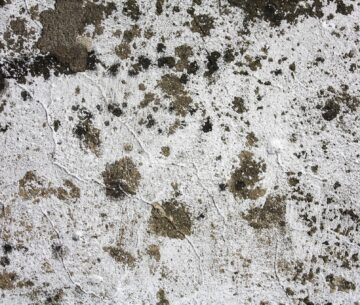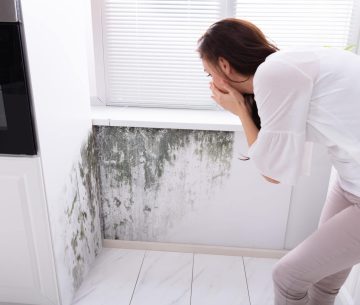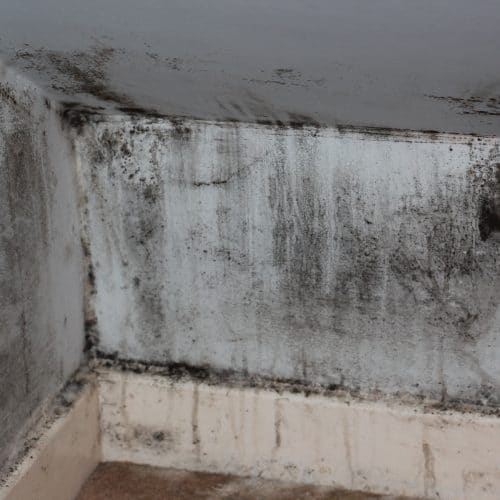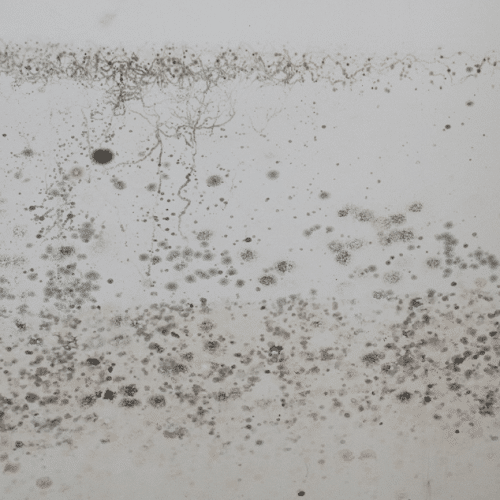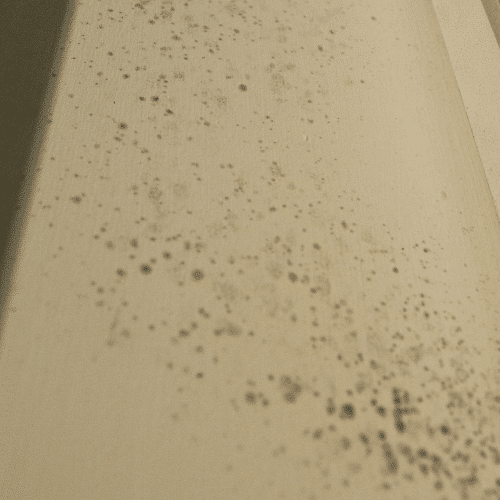Racine Mold Removal
Your Trusted Racine Mold Removal Company
Are you located in Racine and struggling with mold? You need a company who specializes in Racine mold removal. The Dry Guys are here and our expert team is ready to help! We have over 25 years of experience in safe mold removal and are fully trained to handle these situations. Our experts at The Dry Guys have completed many different mold removal projects, and have come out of these projects successfully, leaving our clients completely satisfied.
We know that mold can be worrisome, which is why you should call our professionals to handle the job. Our team will work tirelessly to protect your home and family from breathing in harmful mold. Each team member is highly trained and has been practicing the best process for cleaning out mold safely and efficiently.
Contact us today for more information on scheduling your mold removal. For tips on preventing mold, check out our resources & tips page!
We Solve Black Mold Problems Quickly, Effectively & SAFELY!
Mold is a naturally-occurring fungus, and is found both indoors & outdoors. It produces spores, which act like seeds that can spread through the air and produce new mold growth in the right conditions. Needing only moisture and a food source, mold can grow on almost any surface.
Mold can commonly be found in homes where moisture is most likely to be found: basements, bathrooms, laundry rooms, around leaky toilets, or areas with slow leaks in plumbing or cracks in the foundation. If moisture is not properly controlled, a breeding ground for mold exists. If you’ve had water damage in your home that was not properly dried, there is a possibility of mold growth as well. A musty odor may be first the sign of mold.
Some molds can cause respiratory problems or allergic reactions, and can be especially challenging for people who already have allergies, asthma or other breathing problems. There are certain types of mold that are toxic and poisonous.
DO NOT DISTURB THE MOLD BEFORE UNDERSTANDING WHAT YOU’RE UP AGAINST.
This can cause the mold spores to spread and further exacerbate the problem. Mold that is mishandled, or left unaddressed can become a serious and costly concern. If you find mold in your home, call “the dry guys” first to discuss what you are seeing. We will determine if an in-home inspection is necessary and will recommend the best method for cleaning and removal of the mold.
from the EPA (United States Environmental Protection Agency)
- Potential health effects and symptoms associated with mold exposures include allergic reactions, asthma, and other respiratory complaints.
- There is no practical way to eliminate all mold and mold spores in the indoor environment; the way to control indoor mold growth is to control moisture.
- If mold is a problem in your home or school, you must clean up the mold and eliminate sources of moisture.
- Fix the source of the water problem or leak to prevent mold growth.
- Reduce indoor humidity (to 30-60% ) to decrease mold growth by: venting bathrooms, dryers, and other moisture-generating sources to the outside; using air conditioners and de-humidifiers; increasing ventilation; and using exhaust fans whenever cooking, dishwashing, and cleaning.
- Clean and dry any damp or wet building materials and furnishings within 24-48 hours to prevent mold growth.
- Clean mold off hard surfaces with water and detergent, and dry completely. Absorbent materials such as ceiling tiles, that are moldy, may need to be replaced.
- Prevent condensation: Reduce the potential for condensation on cold surfaces (i.e., windows, piping, exterior walls, roof, or floors) by adding insulation.
- In areas where there is a perpetual moisture problem, do not install carpeting (i.e., by drinking fountains, by classroom sinks, or on concrete floors with leaks or frequent condensation).
- Molds can be found almost anywhere; they can grow on virtually any substance, providing moisture is present. There are molds that can grow on wood, paper, carpet, and foods.
External Resources
Click on the links below for more information about mold in your home.
http://www.cdc.gov/mold/basics.htm
http://www.epa.gov/mold/moldguide.html






